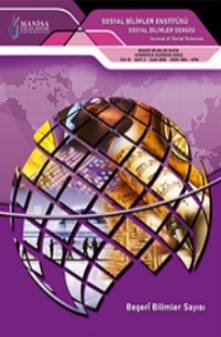Eski Uygur Budist Metinlerine Göre İnsan Embriyosu
Human Embryology According To An Old Uighur Buddhist Text
Author(s): Jens Wilkens, Muammer ŞEHİTOĞLUSubject(s): Historical Linguistics, Indian Philosophy, Demography and human biology, 6th to 12th Centuries, 13th to 14th Centuries, Translation Studies, Turkic languages
Published by: Celal Bayar Üniversitesi Sosyal Bilimler Enstitüsü
Keywords: J. Wilkens; Old Uighur Turkish; Buddhism;
Summary/Abstract: The Period of Old Uighur Turkish It is a period in which cultural concepts, terms and words are exchanged in written language dimension within the historical development and change of Turkish. Especially in the period when Buddhism was effective and widespread, many of the words, concepts and terms related to religious terminology have been translated into Turkish by translating the themed and themed works into Turkish by Kagan and the commanders. These terms, concepts and words that are translated into Turkish; It is related to the disciplines of social sciences (religion, literature, politics, etc.) as well as to the disciplines of science. Thanks to the interdisciplinary link, the belief that birth and death in Buddhism is not only mystical; In the biological dimension, it is seen that the biological terminology formed in the works written in the written language also occurs. The language features of the texts of the period, the ability of the language to express concepts and terms have emerged through the interlingual translations. Jens Wilkens' research is also valuable and remarkable in this respect. In this study, J. Wilkens' Human Embryos According to Old Uighur Buddhist Texts was translated into Turkish and presented to the attention of researchers.
Journal: Celal Bayar Üniversitesi Sosyal Bilimler Dergisi
- Issue Year: 18/2020
- Issue No: 04
- Page Range: 79-92
- Page Count: 14
- Language: Turkish

